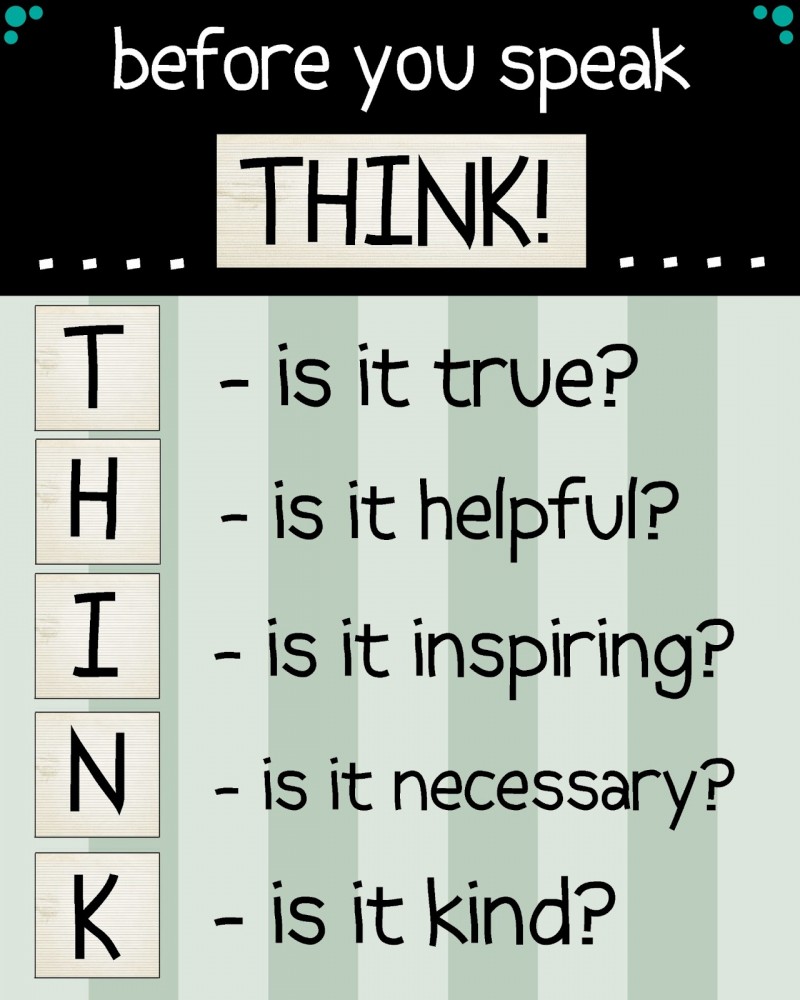Have you ever had one of those moments, where your brain seems to take a mini-break, and as soon as you’ve opened your mouth in front of either one person or a group of people, you feel like clapping your hand to your mouth and hoping the ground swallows you up? Of course you have, because everyone who says ‘no, that’s never happened to me’ is lying, as after-all this is human nature. Yet considering the rules that dictate our social-upbringing throughout life, including ‘think before you speak’ and ‘if you don’t have anything nice to say, then don’t say anything at all’, you would think we, as a population, would have learnt to think before we speak much more gracefully than reality shows.

The importance of ‘think before you speak’ is much more profound than we initially perceive. Amongst friends or family, it is all too common for someone to begin a sentence, trailing off before the end, leaving some reeling in frustration at not knowing what they are talking about, yet others who have a closer bond or have known each other longer, may be able to interpret and indeed finish their conversation for them, which leads us to convey the frustration of how this would affect those in a business situation. If you’re at home and say to someone ‘oh can you pass me that’, it is much more easy for them to know what you are speaking about if you share a close bond, however, if this were business, it is all too easy to see how miscommunication arises, looming from the depth of uncertainty which is why in a business sphere, it is obligatory to be clear about your correspondence. Don’t leave any room for guesswork, as you will only have yourself to blame if something goes wrong and the responsibility falls on your shoulders, as a result of your ambiguity.
As a society, we rely heavily on the power of words to form strong relationships with others, as well as severing ties, simply as a result of our display of communication. Linguistically, each word is full of meaning, and when strung together can have a strong influence on how we perceive others. A simple phrase you may say without thinking, has the ability to encourage or discourage others, and when talking to management, an off the cuff remark you make, may resonate with them for a little longer, re-determining their perception of you and your ability to handle work. Always think of your words as being powerful instead of insignificant, because you never know what will happen as a result of your syntax.
Alongside the importance your words may have in determining your career success, remember that they also have the power to determine how others treat you in a much more personal way. For example, if you continue to bring pessimism to a conversation, it is likely that people’s perception of you alters and you are invited less and less to social occasions, whilst someone who is quick to show their emotions may cause tension in a group. Ultimately, ‘think before you speak’ is just a branch of the age old rule of ‘treat others how you want to be treated’, a motto I suggest everyone abides by!